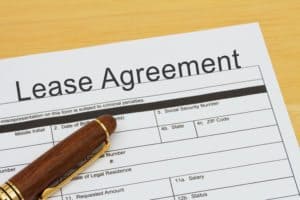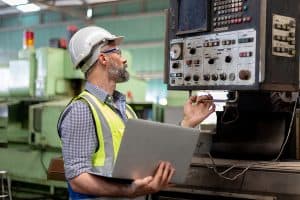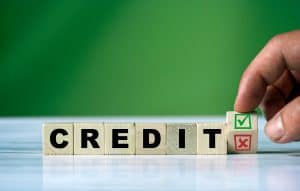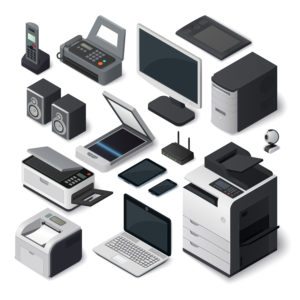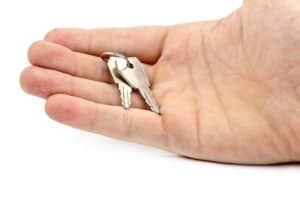With a tax lease, the lessee retains ownership of the equipment for tax purposes. Is a tax lease right for your small business?
Our content reflects the editorial opinions of our experts. While our site makes money through
referral partnerships, we only partner with companies that meet our standards for quality, as outlined in our independent
rating and scoring system.
A tax lease is one of the many types of equipment financing leases. Since leasing equipment can affect your taxes, it’s important to know what a tax lease is, who it’s best for, and how it’s different from other types of equipment leases.
Below, we’ll dive into tax leases and help you determine if this funding is right for your business. If you’re looking for equipment financing, start your search with our picks for the best equipment financing companies.
What Is A Tax Lease?
A tax lease is a form of operating lease in which the lessor — the equipment leasing company — is considered the owner of the property for tax purposes. Tax leases are also known as true leases or true tax leases.
With a tax lease, the lessor assumes the costs and benefits of ownership, including depreciation and tax credits. Meanwhile, the lessee can claim their monthly lease payments as a business expense for tax purposes.
Tax leases last less than a year and are typically most suitable for equipment that a business doesn’t want to own for long — i.e., equipment that depreciates or becomes obsolete quickly.
The Pros & Cons Of Tax Leases
A tax lease isn’t the right type of equipment financing for every business. To determine if a tax lease best fits your needs, review the pros and cons before signing a lease.
Pros
- Your equipment is considered an operating expense for tax purposes.
- You can rent and return equipment that quickly becomes obsolete.
- Your bookkeeping responsibilities are significantly easier regarding that equipment.
- You don’t have to worry about disposal of the equipment.
Cons
- You won’t be eligible for tax credits related to ownership, like depreciation.
- Not suited for fair-market value buyouts or long-term ownership.
- May not be suited for equipment that requires substantial training to use.
Are Tax Leases The Same Thing As Operating Leases?
Until fairly recently, all operating leases were effectively tax leases. However, since 2019, tax leases refer specifically to operating leases in which the lessor retains ownership of the equipment for tax purposes.
When Is An Operating Lease Not A Tax Lease?
Operating leases that last longer than one year are not tax leases. This is because the lessor is required to account for the equipment on their balance sheet if the lease lasts longer than a year.
With an operating lease, the lessor is essentially renting the equipment to the lessee for the length of the term. At the end of the term, lessees are generally given the option to buy the equipment outright at fair market value.
This is less likely to happen with tax leases since they have to adhere to strict time constraints, during which time the lessee is unlikely to have built up much equity.
Tax Leases VS Capital Leases
Capital leases (also known as finance leases) are not tax leases. The purpose of a capital lease is to finance equipment that the lessee will later own. In a capital lease, ownership of the equipment is transferred to the lessee at the beginning of the lease.
In this regard, capital leases function more like loans than true leases despite still having the trappings of leases, like residuals. Of course, these residuals are often as low as $1, which makes them little more than a formality. In this regard, they serve as an alternative to equipment financing.
Why Did The Rules Governing Tax Leases Change?
Before 2019, around 85% of leasing commitments were going unreported. At the time, only capital leases were required to be recognized on the lessee’s balance sheet.
However, companies were gaming the system to keep assets off their books. Investors began to lobby the Financial Accounting Standards Board, which handles leasing standards, to update its definition of tax leases.
Is A Tax Lease The Best Way To Finance Your Equipment?
The ability to treat equipment as an operating expense has a lot of benefits, which is probably why the practice was so heavily abused in the past. For better or worse, the new tax lease definition greatly narrows the conditions under which businesses can effectively do that.
Beyond those limitations, whether or not a tax lease is the best way to finance your equipment depends largely on the way you keep your books and write off your business expenses. In the best-case scenario, you could write your entire monthly lease payment off your taxes if you got a tax lease. To get the most bang for your buck, you’ll want to consult your accountant.
Since tax leases fall under the umbrella of operating leases, you’ll also want to consider the type of equipment you’re leasing. An operating lease is usually best for equipment that you aren’t certain you want to own, often because it depreciates or becomes obsolete quickly. On the other hand, if you think you want to own the equipment, a capital lease may be a better option.






